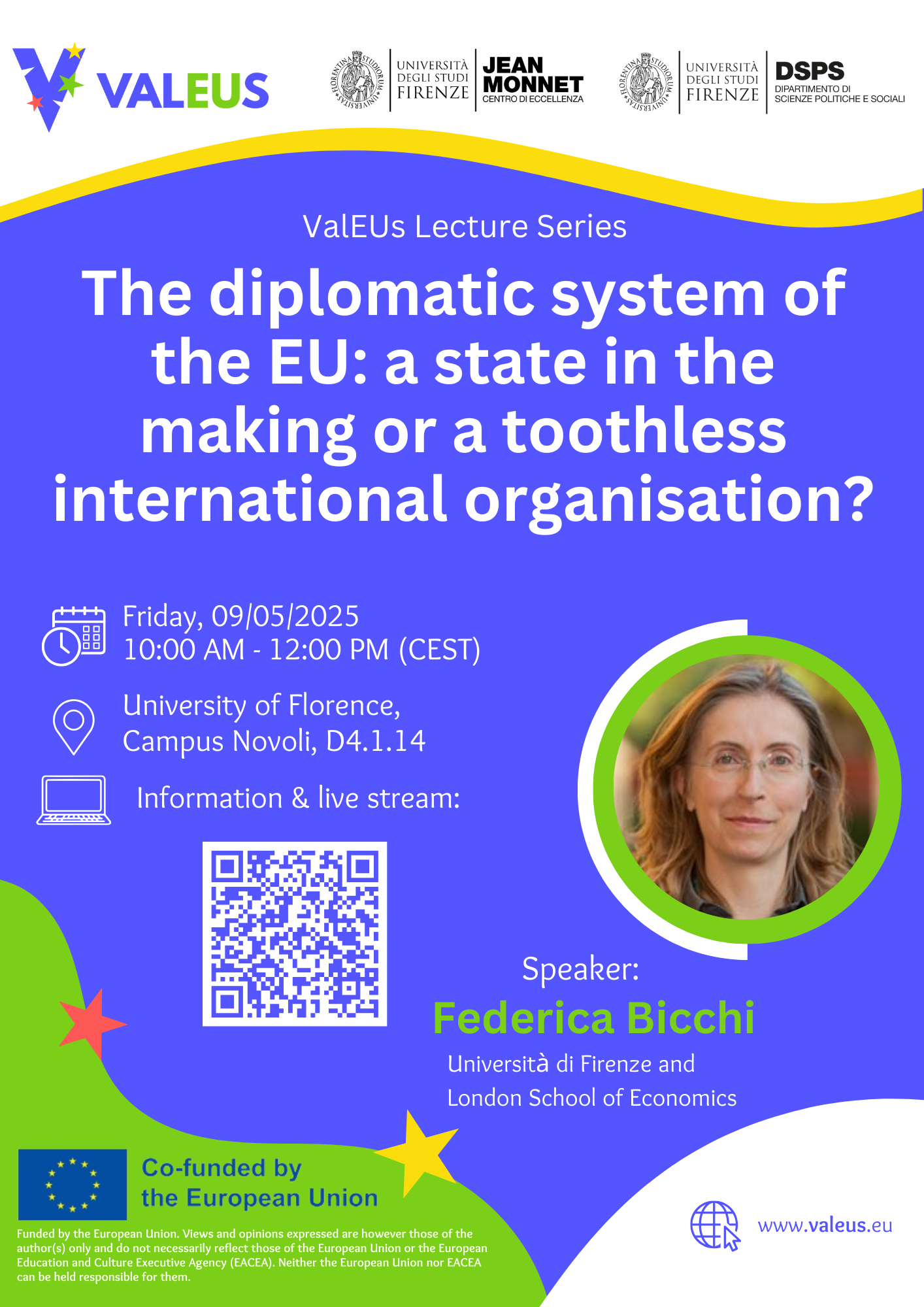Join our upcoming ValEUs Lecture on “The diplomatic system of the EU: a state in the making or a toothless international organisation?” with Federica Bicchi at the University of Florence.
This lecture will analyse the EU’s diplomatic system, in order to understand how well equipped the EU is in practicing diplomacy and supporting its values in the international system. The difference between foreign policy and diplomacy is similar to the difference between an architect and an engineer: while the former has the (political) vision, the latter needs to help in the definition of what is possible and then make it turn into reality. It is thus key to understand how EU foreign policies are supported in the early stages of foreign policy making and in their implementation. As the lecture will explore, the EU has much of the mechanics of states’ diplomatic services, especially when compared to smaller state. When it comes to the unifying vision and the single spirit that animates national diplomatic services, however, the EU’s system is often found lacking. This weakens the EU’s voice in the international arena and hampers its action in most contexts, particularly in situations of conflict.
Date & time: 09/05/2025 | 10:00 AM – 12:00 PM (CEST)
Venue: University of Florence, Campus Novel, D4.1.14
Live stream: via YouTube
ValEUs Lecture Series


